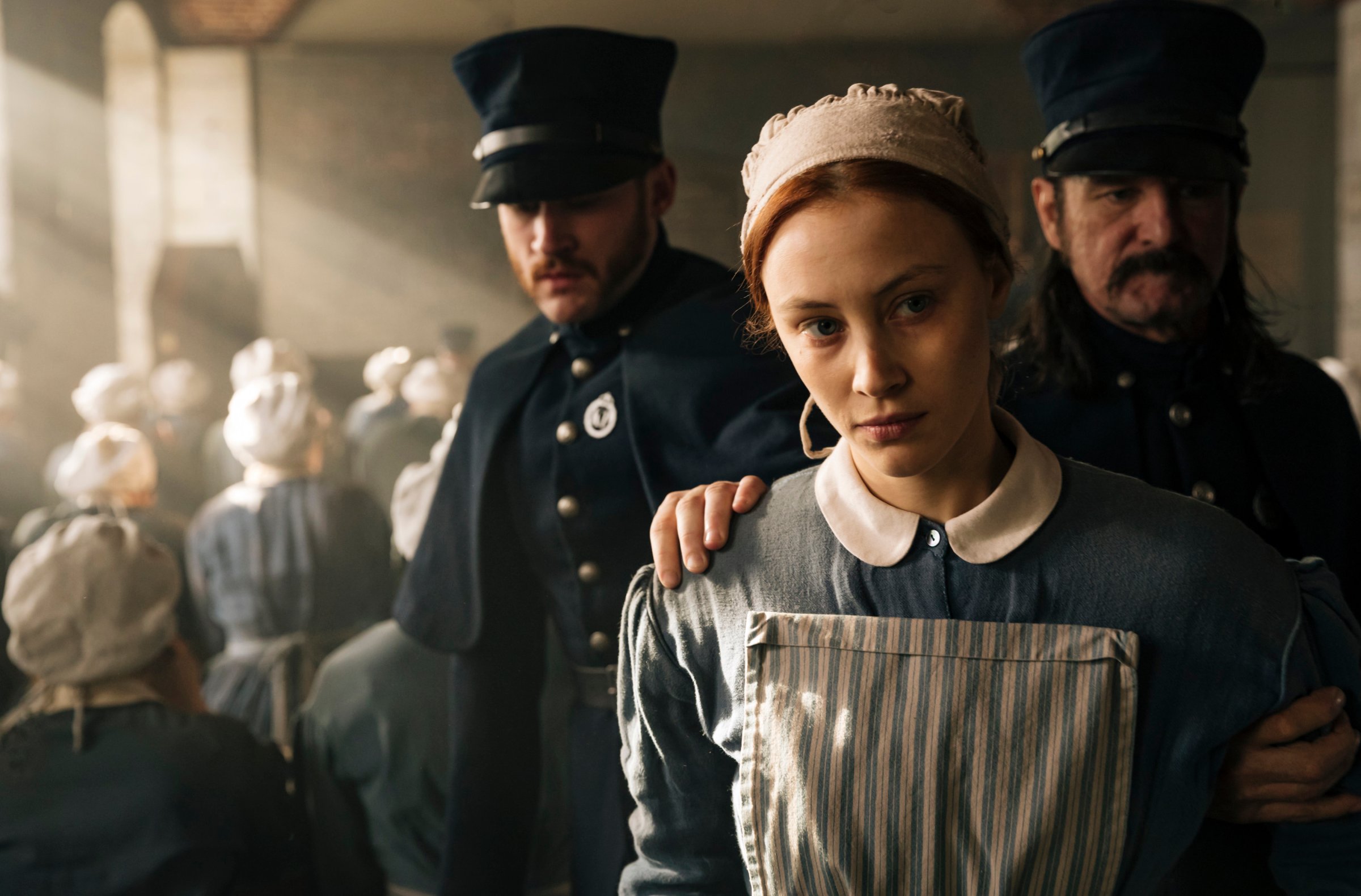
In the earliest moments of Netflix’s new miniseries Alias Grace, an adaptation of a Margaret Atwood historical novel, the title character contemplates herself, thinking through all the different ways she’s been seen since her murder trial and shifting her appearance accordingly. As we meet her for the first time, Grace flickers between personae: one moment near-demonic, the next an innocent, docile creature in need of protection, then snobbish, then naive, then simply a fool.
The actress Sarah Gadon does more, in this minute-or-so-long-shot, as many prestige-TV stars do in a season. And that’s only the beginning. The show’s six episodes tell the story of the unfortunate Grace, an Irish emigrant to Canada who finds herself entangled in a bloody crime. All along, Gadon finds depth in the moments between personae, the times when Grace struggles to figure out exactly what side of herself to present.
We meet Grace some years after her 1843 conviction and imprisonment. She’s continued her old duties as a servant in the home of the prison’s governor, having escaped capital punishment for the murder of her former employer and his mistress. An early psychiatrist, or “alienist,” has been hired to deduce just how culpable Grace was in the crime. Her general history of good behavior as well as her moments deemed, in the parlance of the time, “hysterical” have raised questions about the case. Grace placidly works on her quilting while subject to questioning by Dr. Simon Jordan (Edward Holcroft), slowly spinning both a laboriously crafted blanket and a story whose particulars seem to entirely exonerate Grace.
Grace is at times wry and amused, at other moments passionately emotional recalling the injustices of her voyage from Ireland or the death of her dear friend Mary (Rebecca Liddiard). She seems fairly disaffected about the two people for whose deaths she’s lost her freedom (Paul Gross and Anna Paquin) or for the servant who either helped her do it or did it himself (Kerr Logan)—but then, her story has it that she was entirely uninvolved.
Whether to believe Grace’s story is a less compelling mystery than whether she believes in it, or just in her ability to tell a self-preserving lie. Gadon, an actress best known for her work in the surreal films of David Cronenberg, has her starmaking role here in a role every bit as subject to its own obscure but rigid rules. Whatever goes on between Grace’s ears is a matter we’re not immediately privy to—her face is expressive, but only of what she deems advantageous to show. For an uneducated former maid claiming to have been caught up in someone else’s plot, Grace is uncannily gifted at survival as, say, the protagonist of The Handmaid’s Tale, this year’s other televised adaptation of an Atwood book. That story drew upon history to imagine how badly women’s rights might regress in a dystopia; Alias Grace makes the case more explicit, showing just how dystopic the past really was. Grace is reflexively distrusted. That she so fervently trusts her own ability to carry on is her salvation.
The show’s direction, by American Psycho filmmaker Mary Harron, is elegant, and the script, by Away from Her writer/director Sarah Polley, is crisply modern in its understanding of characters’ psychological realities yet blurry enough on the margins to allow in delicious ambiguity. “I wonder,” Grace asks herself, as she’s toggling between expressions early on, “how can I be all these different things at once?” Her own time rejected complexity: Servant girls needed to be supplicatory and alleged murderers were automatically evil. Gadon, with able behind-the-scenes aid from Harron and Polley, forces complexity upon the Victorian era. She makes Grace something that’s not quite a heroine, but close enough that you won’t be able to stop yourself from rooting for her escape from a time unable to contain her.
More Must-Reads from TIME
- Cybersecurity Experts Are Sounding the Alarm on DOGE
- Meet the 2025 Women of the Year
- The Harsh Truth About Disability Inclusion
- Why Do More Young Adults Have Cancer?
- Colman Domingo Leads With Radical Love
- How to Get Better at Doing Things Alone
- Michelle Zauner Stares Down the Darkness
Contact us at letters@time.com